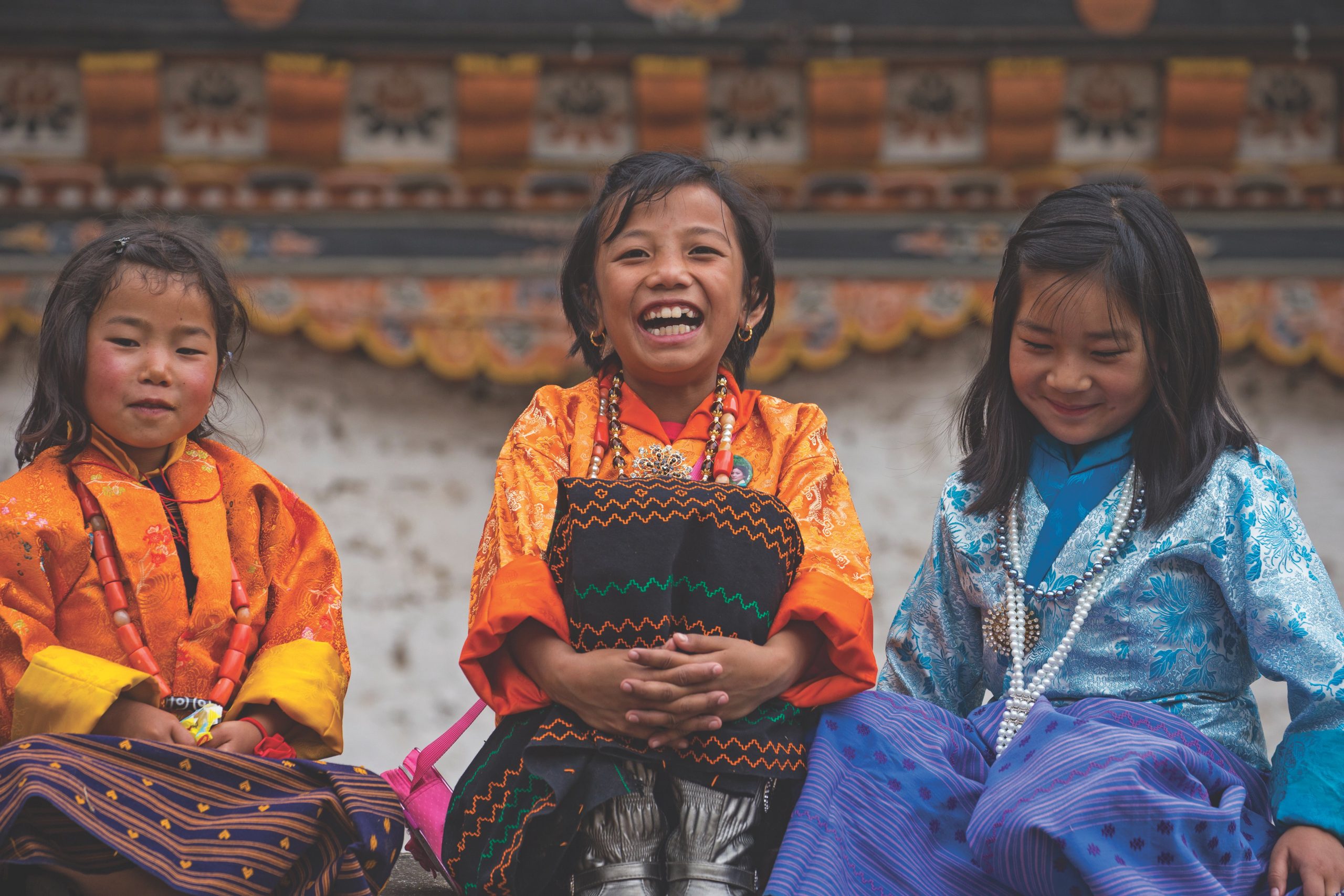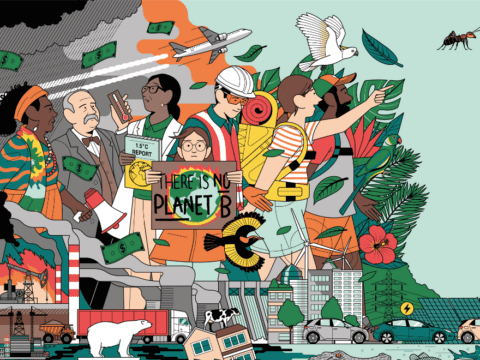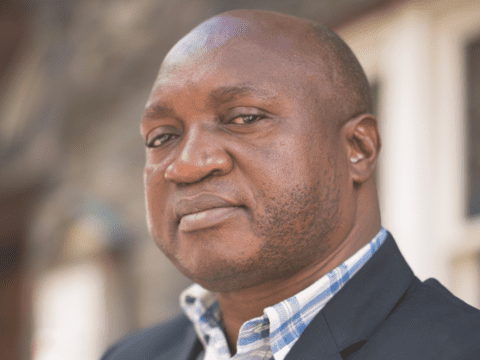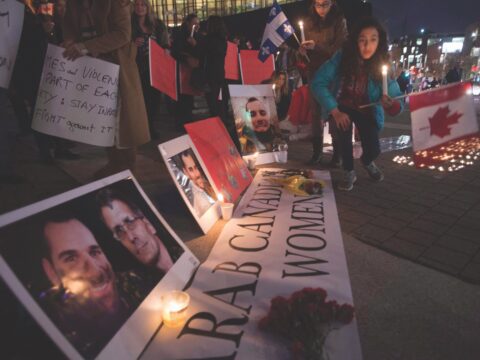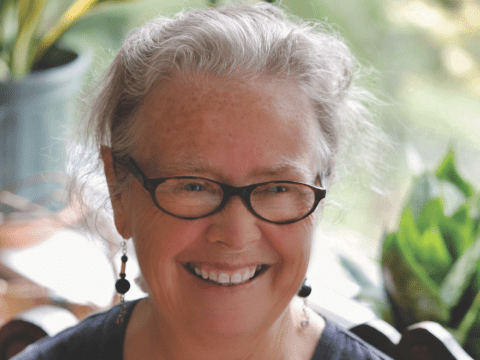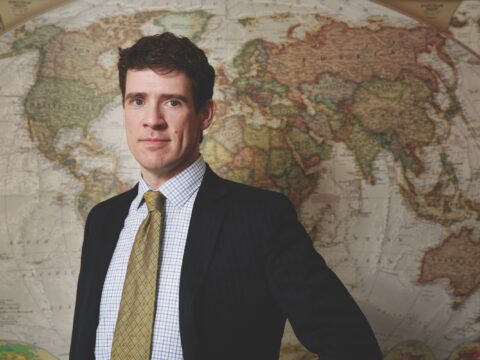Standing at the foot of the staircase that would take me up the final leg to the Tiger’s Nest, I felt a strange sense of elation.
Maybe it was the relief one feels at the end of a long journey — it took hours of climbing to get there, first by mule, then, when things got too steep, on foot.
Perhaps it was the history — formally known as the Taktsang Palphug Monastery, this is the spot where, according to legend, Guru Padmasambhava meditated for three years after flying in from Tibet on the back of a tigress in the eighth century.
Or maybe it was just the thin air going to my head — I was, after all, standing at the edge of a cliff at an elevation of more than 3,000 metres.
But as I prepared to enter one of the world’s greatest Buddhist monasteries, I looked up at thousands of prayer flags flapping madly in the wind and felt exuberant.
My delight was perhaps not surprising, as I was in Bhutan — a country that has gained a worldwide reputation for happiness. Famously, Bhutan shuns economic measures like gross national product in favour of something called gross national happiness (GNH), a measure of the contentment of its people. I’ll admit that when I first heard about GNH, I thought it was a bit of a gimmick, perhaps a canny marketing ploy to bring more visitors.
But as I was to discover during my 10 days here, the Bhutanese take happiness very seriously. This small country, hidden high in the Himalayas between the giants of China and India, was the perfect place to ponder and explore the meaning of happiness.
Often called the “Land of the Thunder Dragon,” Bhutan is ruled by a 34-year-old Oxford-educated king who loves romantic comedies and wears his sideburns long to emulate Elvis. GNH was introduced by his father, who abdicated the throne in 2006 to make way for his more progressive (and photogenic) son. Known colloquially as K5 (he’s fifth in the current line of rulers), this young king, Jigme Khesar Namgyel Wangchuck, has guided the country through its adoption of GNH and toward democracy.
Gross national happiness touches the lives of ordinary Bhutanese in various ways. Daily meditation and reflective gardening is built into the public school curriculum. Quirky road signs line the country’s main routes, spanning the spectrum from encouraging (“Life is a journey! Complete it!”) to cautionary (“This is a highway, not a runway!”). Laws are passed through a special commission that determines their impact on quality of life and makes recommendations for improvements.
“Life isn’t just about economic things,” my tour guide, Sonam, told me. “GNH recognizes that if you seek physical well-being but ignore spiritual well-being, it will cost you your soul.”
As I rode with Sonam over soaring mountain passes, taking in the grandeur of the snow-capped Himalayas and the fairytale charm of the dzongs (spectacular, centuries-old fortresses that dot the countryside), I reflected on the meaning of happiness. Bhutan’s beautiful scenery and warm, welcoming citizens were certainly making me feel happy. Still, I wondered: Is happiness really something that can be promoted or enforced by government?
I consulted with Gus Cooney, a doctoral student who studies happiness at Harvard University. “Defining happiness is something that smart people have been arguing about for thousands of years, and there’s no end in sight,” he told me. But, he said, there are a number of things that reliably make people happy, such as being healthy and falling in love. And, he added, there are a few actions we recognize as happiness-inducing — like spending money on others — that we don’t do as often as we should.
Cooney said he’s found a number of fascinating — and completely unexpected — things about happiness in his research. For example, when something terrible happens to us, we almost always bounce back (a sort of happiness equilibrium that, even if we dip into doldrums for a time, eventually helps to right us). Also, despite the expectations of many, having kids actually decreases people’s happiness overall. “We’re amazingly bad at predicting what will make us happy in the future,” he said.
Though Cooney has never been to Bhutan, I shared some of my travel experiences with him. I told him about how the Bhutanese live in close-knit communities and seem to treasure simple things. He noted that GNH is, in theory, a good concept: focusing on the well-being of citizens is never bad. Similarly, support — whether from one’s community, family or spouse — is always positive, as are simple pleasures. “There’s actually no research on simple pleasures, perhaps because the answer’s already so clear that we don’t need research to tell us,” he observed. “Imagine how long the list of simple pleasures would be: the smell of bread baking in the oven, the feeling of sun on your face after a long winter, and the sound of a friend laughing. It makes me happy just to list them.”
I also told him about the country’s almost unbelievable religiosity — wherever you go in Bhutan, you’ll find Buddhist temples and pagodas and prayer wheels, the latter sometimes turned by octogenarian faithful, who set up behind them, praying all day as they slowly spin the cylinder. On this one, Cooney was more dubious. He lauded Buddhism’s prioritization of the present — people are happiest, he said, when they focus on the here and now. But religion as a whole? That’s more of a mixed bag.
“It’s hard to answer the question about the overall relationship between religion and happiness,” he said. “Any system of belief can alleviate suffering in some people and be the cause of suffering in others.”
Indeed, not everyone in Bhutan is happy. I caught my first glimpse of this during a drive over a high mountain ridge. The crest was dotted with an elaborate series of pagodas, which I walked among before climbing up to a very small monastery. There, among the plump Buddhas and flickering candles, were a number of rifles leaned up against the wall. When I asked Sonam whether the caretaker monk could explain the presence of firearms in a place of peace, she grew tense, explaining, in vague terms, some battles that had taken place in the 1990s. “These commemorate our victory, and now, our unity,” she said, with no further explanation.
After a little further research, I learned that everything here is not quite as copacetic as it may first appear. In fact, three decades ago, the Bhutanese government trained its energies on a large ethnic minority, driving out thousands by force. Known as the Lhotshampa, these people of Nepali origin settled in Bhutan’s south in the late 19th century. By the 1980s, the government saw them as a threat and began restricting their freedoms, which in turn led the Lhotshampa, who are predominantly Hindu, to organize a number of protests. Bhutan’s military responded with decisive and brutal force, arresting thousands and driving many more from the country. By 1992, more than 80,000 Lhotshampa lived in United Nations refugee camps just over the border in Nepal.
A number of those driven from Bhutan settled in Canada, and some of them have become part of Pastor Bill Millar’s congregation at Knox United in Winnipeg. Millar scoffed at any notion of Bhutan being a peace-loving nation that spreads universal happiness among its people. Calling the country’s leadership “fundamentalist Buddhists,” he added that the Lhotshampa included a small group of Christians who were oppressed or removed if they refused to renounce their faith.
Millar referred me to Damber Khadka, a church leader who was among those forced out of Bhutan. As expected, Khadka was extremely skeptical about gross national happiness. Noting that the roots of the expulsion go back even further, to the 1950s, he called the treatment of his people “ethnic cleansing.” In his eyes, GNH is nothing more than a sentiment put forth by a majority that triumphed over a minority. “It’s nothing but the expression of the people who succeeded in ethnic cleansing,” he observed.
And yet — without excusing or minimizing the shameful events in the country’s history — the people I met in Bhutan really did seem happy. I visited a number of villages on a national holiday and watched men in traditional garb shoot archery, ebulliently celebrating hits and playfully teasing misses while young boys mimicked their moves in long-distance games of darts. I observed families sharing picnic lunches along the riverside, and others hiking to hilltops to visit temples with breathtaking 360-degree views.
Toward the end of my trip, I headed deep into the mountainous heart of the country, driving over perilous switchbacks to a lodge with a view of a remote valley where rare flocks of Tibetan black-necked cranes migrate every year. On the way, I listened to a Bhutanese monk preaching on the radio about GNH. He held forth on something I’d heard before — that the extent to which you can be content with what you already have correlates directly with your ability to be happy. You complicate your life with materialism at your own peril. “To be,” he said, pausing dramatically, “is more important than to have.”
The next day, I hiked through the valley with Nomgay, the lodge’s resident guide, who got me extremely close to the cranes before teaching me how to shoot archery. I asked him his opinion of this monk’s sermon and on gross national happiness in general.
To my surprise, he was dubious, feeling that in some ways it’s more of a slogan than a reality. But in the end, he said, it’s hard to deny the importance of the social support provided by the government — a key part of GNH, especially the free health care and education. Making a sort of scale with his hands, he said, “It’s about the poor being not so poor and the rich being less rich. Everyone’s equal.”
For all the talk I’d heard during my time there, this was one of the most straightforward and significant expressions of GNH I’d encountered. Give people what they need to be content, the tools to survive and even thrive, and you give them a good chance to be happy. Bhutan may not be perfect — far from it, in fact. But prioritizing happiness — and backing it up, to some extent — seems like a good place to start.
***
This story first appeared in The United Church Observer’s October 2014 issue with the title “In pursuit of happiness.”

